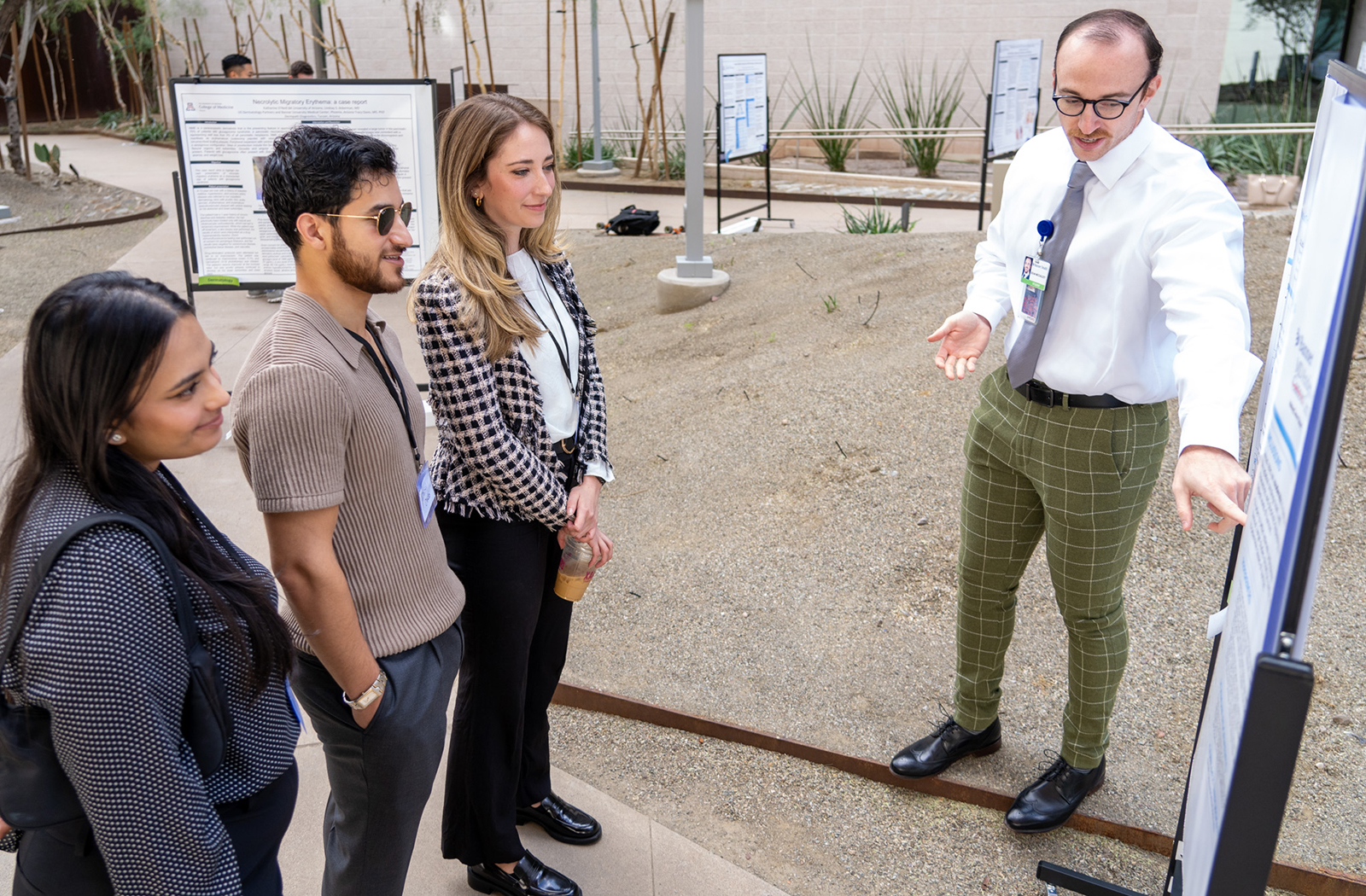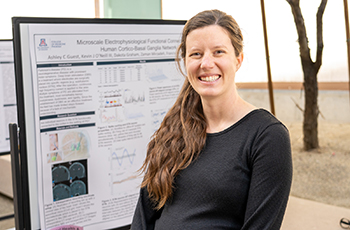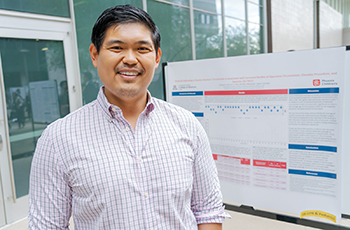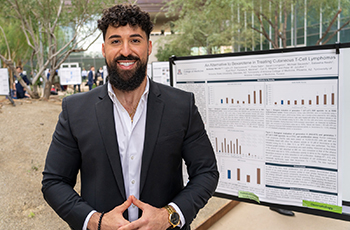
After Four Years of Scholarly Research, Students Presented their Findings at Annual Symposium

A key differentiator for medical students at the University of Arizona College of Medicine – Phoenix is their completion of a Scholarly Project — a publishable, hypothesis-driven, data-supported research endeavor that spans their entire four years of study.
As one of only a few medical schools to require its students to undertake such a project, the College of Medicine – Phoenix equips students with the skills to understand and incorporate medical research throughout their careers as physicians.
Having experience in research creates providers who not only achieve better patient outcomes and administer better care, but also are better equipped to critically analyze emerging literature in their field, ask the right questions and investigate data they encounter.
A study published in the journal Medical Science Educator in April 2022 reinforces those sentiments. Receiving feedback from 619 medical students across 290 institutions and 88 countries, respondents felt that research education was a vital component of their medical education, and its inclusion should be essential in curriculum.
J. Stephan Stapczynski, MD, director of Scholarly Projects at the college, offered insight into why it is so vital for the college’s students to have this experience. “Advances in medical science come from high quality research. We feel it is important that students understand how medical research is done, so they can best incorporate the findings into their clinical practice,” he said. “Doing research is one of the best ways to learn about it and is central to how our college prepares its graduates to be lifelong learners.”
On Thursday, March 7, medical students from the Class of 2024 presented their research at the Annual Scholarly Project Research Symposium. To shed light on the process, several future physicians shared what they learned from their research how they felt it will make them better physicians; and offered advice to incoming medical students on what to expect.
Scholarly Projects
About the College
Founded in 2007, the University of Arizona College of Medicine – Phoenix inspires and trains exemplary physicians, scientists and leaders to advance its core missions in education, research, clinical care and service to communities across Arizona. The college’s strength lies in our collaborations and partnerships with clinical affiliates, community organizations and industry sponsors. With our primary affiliate, Banner Health, we are recognized as the premier academic medical center in Phoenix. As an anchor institution of the Phoenix Bioscience Core, the college is home to signature research programs in neurosciences, cardiopulmonary diseases, immunology, informatics and metabolism. These focus areas uniquely position us to drive biomedical research and bolster economic development in the region.
As an urban institution with strong roots in rural and tribal health, the college has graduated more than 1,000 physicians and matriculates 130 students each year. Greater than 60% of matriculating students are from Arizona and many continue training at our GME sponsored residency programs, ultimately pursuing local academic and community-based opportunities. While our traditional four-year program continues to thrive, we will launch our recently approved accelerated three-year medical student curriculum with exclusive focus on primary care. This program is designed to further enhance workforce retention needs across Arizona.
The college has embarked on our strategic plan for 2025 to 2030. Learn more.



